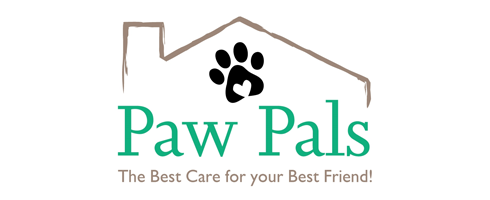At first glance, it might seem like dogs can consume almost anything without any repercussions. We’ve all seen those heartwarming scenes in movies or cartoons where dogs eagerly gobble up whatever food is offered to them. However, this perception is far from the truth. In reality, numerous human foods are not just unhealthy but can pose severe dangers to dogs. Being well-informed about these potential hazards is crucial to safeguard your furry friend’s well-being.
The Risks of Inappropriate Foods
Feeding your dog the wrong foods not only jeopardizes their health but could also lead to emergency veterinary visits. To prevent such situations, it’s imperative to be aware of the human foods that should be strictly off-limits for your canine companion.
Chocolate: A Not-So-Sweet Treat
Chocolate tops the list of hazardous human foods for dogs. It contains theobromine, a substance highly toxic to a dog’s digestive system. The darker the chocolate, the more theobromine it contains. Even a small amount can result in a trip to the emergency vet. Always keep chocolate and other candies out of your dog’s reach.
Garlic: Harmful to More Than Just Vampires
Garlic, present in many human dishes, can be detrimental to your dog’s well-being. Excessive amounts of garlic can affect their red blood cells and may even necessitate a blood transfusion. While it might be unlikely for your dog to snatch garlic off the kitchen counter, it’s best to keep it out of reach.
Cooked Bones: Not All Bones Are Created Equal
While bones are often considered treats for dogs, cooked bones pose a significant threat. Cooked bones can splinter while being chewed, leading to choking, intestinal blockages, or punctured intestines. Always opt for raw bones and supervise your dog during chewing sessions.
Grapes (and Raisins): A Deceptive Delight
Grapes may seem like a harmless snack, but they can cause kidney failure, vomiting, diarrhea, and lethargy in dogs. The exact compounds responsible are not fully understood, making it crucial to avoid grapes and raisins altogether.
Onions and Chives: Red Blood Cell Woes
Onions and chives, belonging to the allium family, can harm your dog’s red blood cells, resulting in lethargy and other health issues. Ensure that your dog avoids any foods containing these ingredients.
Avocado: More Than Just Guacamole
Avocados, besides being high in fat, contain persin, which is toxic to dogs. Ingesting persin can lead to upset stomachs, breathing difficulties, and even fluid buildup in the chest. The seed inside avocados poses an additional risk of intestinal blockage.
Ice Cream: Lactose Intolerance Strikes Again
Dogs, being lactose intolerant, struggle to digest ice cream properly. This can lead to stomach problems, and in some cases, more severe issues. It’s best to refrain from sharing your ice cream with your dog.
Macadamia Nuts: Toxic Treats
Macadamia nuts are highly toxic to dogs, causing weakness, gait issues, vomiting, and tremors. It’s essential to keep these nuts out of your dog’s reach.
Sugar: Sweet Trouble
Dogs lack the enzymes needed to efficiently break down sugars, making high-sugar foods problematic. Apart from short-term issues, excessive sugar intake can lead to long-term problems like diabetes and obesity.
Dog-Friendly Treats: Moderation is Key
Ensuring the well-being of our beloved canine companions involves not only steering clear of potentially harmful foods but also recognizing that moderation plays a pivotal role in providing a wholesome and enjoyable diet. As responsible pet owners, we are entrusted with the task of understanding that our furry friends, despite their often insatiable appetites, have dietary needs distinct from our own.
Cheese: A Delightful Treat
Cheese, in small amounts, can be a great treat for dogs. Opt for low-fat varieties and use cheese cubes as rewards during training sessions.
Peanut Butter: A Canine Favorite
Peanut butter, rich in heart-healthy fats, protein, and essential vitamins, is a beloved treat for dogs. Choose raw, unsalted varieties and avoid any containing xylitol, a toxic sugar substitute.
Popcorn: Surprisingly Healthy
Popcorn, when plain and free from additives, can be a light and healthy treat for dogs. It’s an excellent option for training rewards, providing riboflavin, thiamine, protein, and vitamin E.
Coconut: A Nutrient-Rich Choice
Coconut, in various forms like pieces, oil, or milk, is not only a healthy diet choice but also beneficial for skin issues. Ensure you remove the outer shell before offering it to your dog.
Honey: Nature’s Sweet Remedy
Honey, packed with vitamins and antioxidants, can benefit dogs. A small amount daily may even help with allergies. It can also be applied topically for cuts and burns.
Tuna: Omega-3 Boost
Fresh, cooked tuna is rich in omega-3 fatty acids, promoting better eyesight and heart health in dogs. Opt for varieties packed in water, avoiding excess sodium and mercury.
Bread: A Filling Filler
While not nutritionally rich, plain bread can be used as a filler or combined with peanut butter. Choose fresh bakery bread without preservatives or excess sugars.
Reach Out to Northern Virginia’s Top Dog Sitters
If you ever find yourself in need of assistance with your pets, Paw Pals is here to help. Our PetTech Certified dog sitters, adept in pet CPR and nutrition, stand ready to ensure the well-being and joy of your furry companions. Whether it’s a brisk dog walk, a comforting homestay, or specialized services, we prioritize your pets’ safety and happiness.
From scheduled mid-day recurring dog walks to overnight homestays, we ensure your pets are well-cared for when you can’t be with them. Contact us today to explore how we can contribute to the happiness and well-being of your furry companions!


